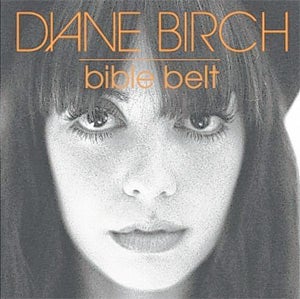Your support helps us to tell the story
From reproductive rights to climate change to Big Tech, The Independent is on the ground when the story is developing. Whether it's investigating the financials of Elon Musk's pro-Trump PAC or producing our latest documentary, 'The A Word', which shines a light on the American women fighting for reproductive rights, we know how important it is to parse out the facts from the messaging.
At such a critical moment in US history, we need reporters on the ground. Your donation allows us to keep sending journalists to speak to both sides of the story.
The Independent is trusted by Americans across the entire political spectrum. And unlike many other quality news outlets, we choose not to lock Americans out of our reporting and analysis with paywalls. We believe quality journalism should be available to everyone, paid for by those who can afford it.
Your support makes all the difference.It would be easy to imagine, listening to Diane Birch's debut album, that she had spent years keenly studying the same R&B influences that guided her blue-eyed-soul peers Amy Winehouse, Joss Stone and Duffy.
But Birch's route to recognition took a far more circuitous course: the daughter of peripatetic Seventh Day Adventist preacher parents, she was forbidden to watch movies or listen to anything other than classical and religious music as the family evangelised its way through southern Africa and Australia.
Only when they fetched up in Portland, Oregon did she discover pop, and then the reaction was typically teen-extreme: her first heroes were the likes of The Cure and Sisters Of Mercy, with Birch covertly adopting the fully mascara'd appearance of a Goth, complete with black velvet cape.
Thankfully she grew out of that obsession, and during exploratory sojourns in Los Angeles and London, developed the fetching Seventies-flavoured soul stylings that make up Bible Belt, which was recorded in New Orleans and her current hometown New York with a classy retinue of musicians including Meters bassist George Porter and Patti Smith's guitarist Lenny Kaye, and overseen by soul legend Betty Wright, who did a similar job for Joss Stone.
Not that Birch resembles the leather-lunged Stone; her voice, and writing style, is much more nuanced, strongly reminiscent of Laura Nyro, with occasional touches of Maria Muldaur coming through in the falsetto catch that features on songs such as "Valentino", a playful pop-soul number about how she took solace in an imaginary friend to stave off the dispiriting boredom of playing piano in an LA hotel bar.
Though classically-trained, there's a freshness and freedom about her piano style which enables her to tackle with equal aplomb the bluesy piano triplets of "Fire Escape", the New Orleans second-line groove of "Rise Up", the smouldering Southern soul of "Forgiveness" and the Seventies' singer-songwriter flavour of "Ariel", the melody and arrangement of which could have come straight from an Elton John album of that era.
It's entirely possible that "Ariel" is yet another imaginary friend, especially given her eccentric pronunciation; but elsewhere Birch's songs seem more autobiographically sourced.
"Don't Wait Up" is about growing up a Goth with religious parents, and having to go out conservatively dressed before adopting the full Goth slap and schmutter in a nearby rest-room: "Don't wait up for me, 'cos you ain't gonna like what you see"; while the rollicking soul-rocker "Choo Choo" reflects the lingering effect of a particularly manichean form of parental scolding: "Thought I was on my way to heaven/Seems I'm riding the train straight to hell".
But surely only the most bitterly killjoy parents could find much to complain about in an album that demonstrates how well they brought up their talented daughter?
Download this: Fire Escape; Valentino; Fools; Rise Up; Ariel; Forgiveness

Join our commenting forum
Join thought-provoking conversations, follow other Independent readers and see their replies
Comments